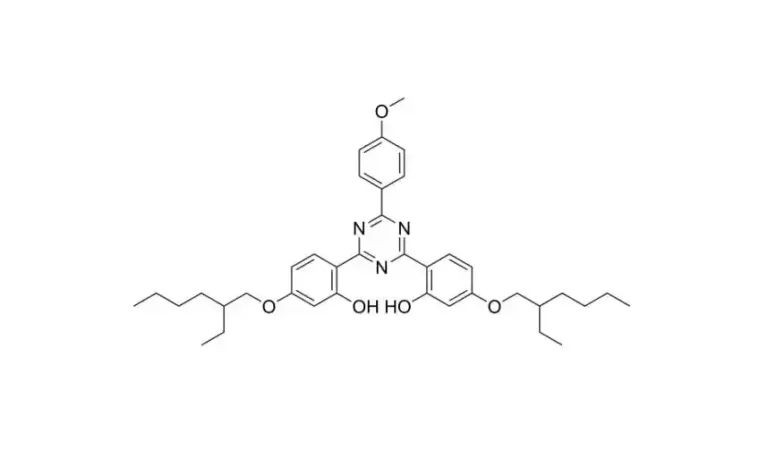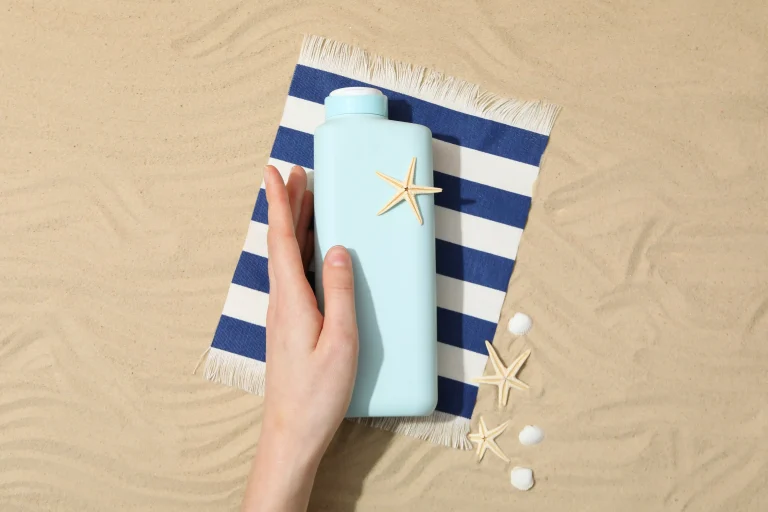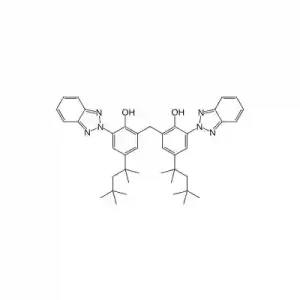Organic UV filters provide protection to the skin against UV radiation, which can lead to premature aging and also significantly raises the risk for skin cancer. This blog talks about organic UV filters, especially the role of Bisoctrizole, which is very unique for effective sun protection.
What Are Organic UV Filters?
Organic UV filters are one of the most essential ingredients in any sunscreen formulation. Organic UV filters are used as active ingredients in personal care products to protect the skin from damage caused by ultraviolet radiation. As you start working in the field of sun care formulation, it becomes quite essential to understand the role and importance of these filters. By and large, these include different chemicals that can absorb UV radiation, thereby protecting one’s skin from further damage.
Definition and Purpose
The primary function of organic UV filters is to absorb UV radiation and then prevent its penetration into the skin. The absorption process reduces the likelihood of sunburns and other adverse effects resulting from the intake of UV radiation by skin tissue. Their inclusion in sunscreens protects the skin and makes sunscreens effective.
Common Types of Organic UV Filters
You will find numerous kinds of organic UV filters in the market. Shanghai BFP New Material Co., Ltd., for example, has a variety of these filters which include:
- Bisoctrizole / BFP-SP M (Tinosorb M)
- Bemotrizinol/ BFP-SP S
- Diethylamino Hydroxybenzoyl Hexyl Benzoate/BFP-SP DHHB
- Ethylhexyl Triazone/BFP-SP EHT
- Octocrylene/ BFP-SP OCT
- Avobenzone/ BFP-SP AVB
- Octyl Salicylate/BFP-SP OS
- Homosalate/ BFP-SP HMS
- Phenylbenzimidazole Sulfonic acid/BFP-SP PBSA
Each of the filters has peculiar properties and applications in different sunscreen formulae and together may be used for the purpose of giving broad-spectrum protection against UVA and UVB.
How Does Bisoctrizole Work as Organic UV Filter?
While understanding how bisoctrizole works, you need to consider those properties of this ingredient which make it invaluable in sun care product formulation. Generally speaking, bisoctrizole is effective and stable and thus may play many roles in sunscreen formulation.
Chemical Composition and Structure
Bisoctrizole is also referred to as Methylene Bis-Benzotriazolyl Tetramethylbutylphenol, better known as Tinosorb M. It is a photostable UVA micronized absorber with the chemical constitution that allows for good dispersion in the aqueous phase of emulsions. Such a structure allows for this photostabilizer to result in three sunscreen effects of absorption of UVA light, scattering, and reflection due to its micro-organic particle size, and even absorption of blue light.
Mechanism of Action
Bisoctrizole exhibits its action through a remarkably effective absorption of UVA radiation apart from scattering and reflection of UV light. This dual action not only enhances its protective ability but also imparts color correction in sunscreen formulations. It thus offers improved SPF upon combination with other oil-soluble UV filters.
How Does Bisoctrizole Differ from Other Organic UV Filters?
If one considers the aspects that are different for bisoctrizole from other organic UV filters, a lot of factors come to light about its superiority in one way or another. These relate to stability, spectrum of protection, and safety profile.
Stability and Photostability
One of the important features of bisoctrizole is very good photostability. Due to this, it provides very good photostability, especially when compared with other organic filters, so long-lasting protection can be guaranteed even under intensive UV radiation. This stability makes it an ideal choice for sunscreen formulations requiring reliable performance over extended periods.
Spectrum of Protection
The active constituent, bisoctrizole, protects against both UVA and UVB rays and thus provides broad-spectrum protection. Moreover, absorption of blue light extends the protective spectrum, which makes it suitable for comprehensive sun care applications. Synergy effect with oil-soluble UV filters allows boosting SPF when combined with other absorbers, for example, UVB-specific agents.
Safety and Skin Compatibility
When selecting ingredients for skin care, safety has to be one of the highest priorities. Bisoctrizole has excellent skin compatibility; hence, it is best used in water-based formulations that need to be tenderly applied. In addition, according to the manufacturer, it follows the principles of sustainable development-lean production with clean energy sources and efficient processes-minimizing impacts on the environment.
These insights, when put into the role of bisoctrizole as an organic UV filter, help in understanding the real character of sun care product formulation: strong protection but with sustainability measures in mind, maybe more appealing to today’s modern consumer demands for efficiency sensitive to the environment.
Why BFP Can Be a Reliable Bisoctrizole Supplier
In choosing a supplier of bisoctrizole, considerations focus on reliability and quality. In this regard, Shanghai BFP New Material Co., Ltd. has proved to be a reliable supplier whose products are a full range of organic UV filters made to meet the demands of the sun care and cosmetic industries.
BFP-SP M Product Introduction
Among its product line, there is Methylene Bis-Benzotriazolyl Tetramethylbutylphenol, which is also known as Bisoctrizole or BFP-SP M. It’s a very effective micronized photostable UVA absorber designed to be dispersed in the aqueous phase of emulsions, providing a triple sunscreen effect. It will absorb UVA light, scatter and reflect UV light because of its micro-organic particle size and absorb blue light, which makes it very suitable for applications in the personal care industry as an active raw material in the formula of sunscreens.
Quality Assurance and Certification
Quality remains the prime factor in the manufacturing of any product meant for use on human skin, especially sunscreens. Quality assurance ought to meet the strictest requirements for the safety and efficacy of a sunscreen. Testing of Bisoctrizole by Shanghai BFP follows international regulations. It has good photostability and broad-spectrum UV protection, which explains why it’s a favorite with formulators who require performance-oriented products. Moreover, BFP points out that by sustainable development of manufacturing process, environmental impact is reduced and all pollution control measures are achieved by using clean energy sources and process optimization.
Conclusion
Those would be the special peculiarities pointing to the value of bisoctrizole as an organic UV filter in sunscreen formulations. Its exceptional stability and broad-spectrum protective possibilities make it a favorite among formulators trying to offer their customers efficient sun care while still meeting today’s consumer demand for green products.
Frequently Asked Questions About Bisoctrizole and Organic UV Filters
Is Bisoctrizole Safe for Daily Use?
Yes, this is suitable for everyday use. It has been noted for good skin compatibility, and thus it could be suitable in aqueous formulation or applications requiring gentle application on the skin. The manufacturer looks after sustainable development at the very production stage of the product: according to principles of using only clean sources of energy, along with optimization processes to minimize its impact on nature.
Can Bisoctrizole Be Used in Combination with Other Filters?
Yes, it can. Bisoctrizole allows synergy effects in combination with oil-soluble UV filters. Such combination enables one to significantly boost SPF levels once integrated with other absorbers, like UVB-specific agents. This means enhanced versatility under different sunscreen formulations.
How Does Bisoctrizole Perform in Water Resistance?
Bisoctrizole provides very good protection in the UV-A range for aqueous formulations; it thus represents a very effective basis for obtaining water resistance. Thus, it provides very good protection by scattering and reflecting UV light after well absorbing the UVA radiation even under water and sweat conditions as occurring often during outdoor activities.














